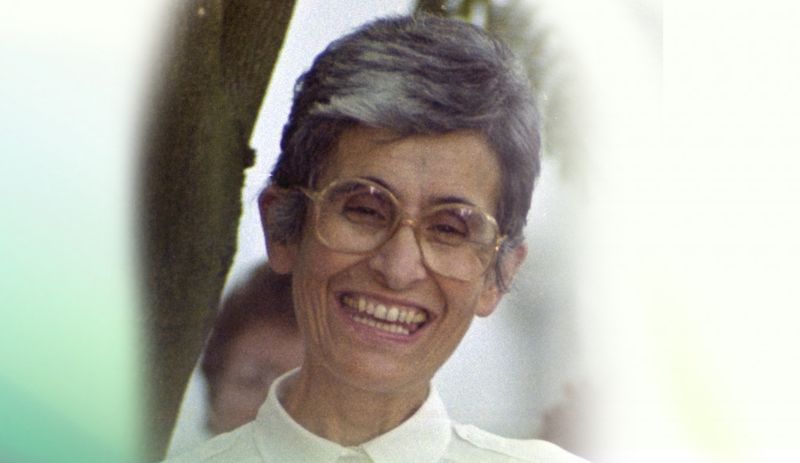
8 Mar 2018 | Focolare Worldwide
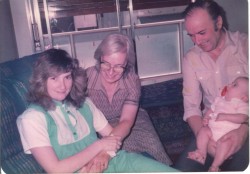 María Cecilia Perrín was a sunny-natured Argentinean girl born in Punta Alta (Buenos Aires) in 1957. After being engaged for two years, she and Luis married in 1983 and she lived intensely with the desire to set solid Christian roots to the emerging family. Two years later, while she was pregnant she was diagnosed with cancer. With the support of her husband and the family, she chose not to heed the suggestion to undergo a “therapeutic abortion.” She died at the age of 28 after the birth of the baby girl. As she expressly requested, her remains were interred in the Mariapolis Lia (O’Higgins, Buenos Aires), a place of joy and hope. Her reputation of sanctity, heroism in accepting her illness, the example of Christian life, and the many graces that have been granted through her intercession started off the cause of her beatification on 30 November 2005.
María Cecilia Perrín was a sunny-natured Argentinean girl born in Punta Alta (Buenos Aires) in 1957. After being engaged for two years, she and Luis married in 1983 and she lived intensely with the desire to set solid Christian roots to the emerging family. Two years later, while she was pregnant she was diagnosed with cancer. With the support of her husband and the family, she chose not to heed the suggestion to undergo a “therapeutic abortion.” She died at the age of 28 after the birth of the baby girl. As she expressly requested, her remains were interred in the Mariapolis Lia (O’Higgins, Buenos Aires), a place of joy and hope. Her reputation of sanctity, heroism in accepting her illness, the example of Christian life, and the many graces that have been granted through her intercession started off the cause of her beatification on 30 November 2005. 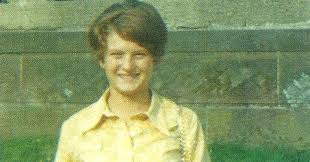 Maria Orsola Bussone, born in 1954 in Vallo Torinese, northern Italy, was a generous, open and sportive child. At the age of 11 she participated with her family in a meeting of the parish Movement in Rocca di Papa. She wrote to Chiara Lubich: “I want to love always, be the first to love, without expecting a return. I want to let God use me as He desires and do all I can, since that is the only thing in life that matters.” On 10 July 1970, at 15, while participating as an activities coordinator in a summer camp, she died of an electric shock while drying her hair with a hairdryer. Her fame of sanctity spread and many people went to her tomb to pray for her intercession. Her diary and letters revealed her deep spirituality. The construction of the parish Centre to which she contributed was named after her. On 17 December 2000 the diocesan phase of the cause of beatification ended. On 18 March 2015 Pope Francis authorised the promulgation of the decree which declared her a Venerable.
Maria Orsola Bussone, born in 1954 in Vallo Torinese, northern Italy, was a generous, open and sportive child. At the age of 11 she participated with her family in a meeting of the parish Movement in Rocca di Papa. She wrote to Chiara Lubich: “I want to love always, be the first to love, without expecting a return. I want to let God use me as He desires and do all I can, since that is the only thing in life that matters.” On 10 July 1970, at 15, while participating as an activities coordinator in a summer camp, she died of an electric shock while drying her hair with a hairdryer. Her fame of sanctity spread and many people went to her tomb to pray for her intercession. Her diary and letters revealed her deep spirituality. The construction of the parish Centre to which she contributed was named after her. On 17 December 2000 the diocesan phase of the cause of beatification ended. On 18 March 2015 Pope Francis authorised the promulgation of the decree which declared her a Venerable. 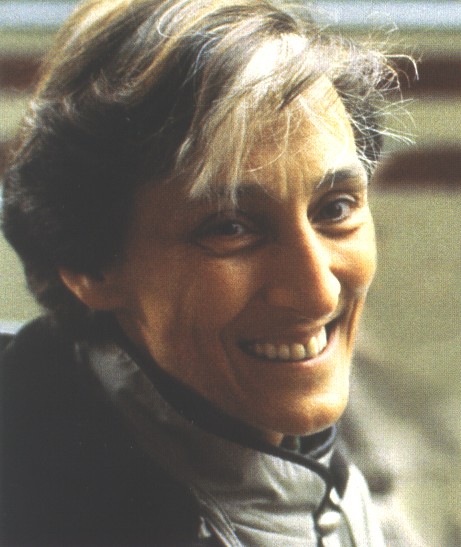 Margarita Bavosi, born in 1941, is the third child of a wealthy family of Buenos Aires (Argentina). She lived a happy life until she was ten, when her mother suddenly passed away. The acute pain pushed her to ask the Virgin Mary to take her place. The meeting with the charism of unity was the answer to her desire for sanctity. She donated her life to God in the focolare, and was known to all as “Luminosa.” She spent some years in Brazil, Argentina and Uruguay, and became the co-director of the Focolare Movement in Spain. At 40 she felt an unexplainable physical decline, and only after three years received a precise prognosis. Soon she was unable to move about but continued to build relationships, taking to heart the motto of St. Aloysius Gonzaga “I shall keep on playing my game.” The night of 6 March 1985, amid the amazement of those present, she said “Here I am Jesus, I have always tried to do everything in your presence.” On 22 November 2008 the diocesan phase of the canonisation phase closed. The center of the Focolare of Madrid and the international town close to New York were named after her.
Margarita Bavosi, born in 1941, is the third child of a wealthy family of Buenos Aires (Argentina). She lived a happy life until she was ten, when her mother suddenly passed away. The acute pain pushed her to ask the Virgin Mary to take her place. The meeting with the charism of unity was the answer to her desire for sanctity. She donated her life to God in the focolare, and was known to all as “Luminosa.” She spent some years in Brazil, Argentina and Uruguay, and became the co-director of the Focolare Movement in Spain. At 40 she felt an unexplainable physical decline, and only after three years received a precise prognosis. Soon she was unable to move about but continued to build relationships, taking to heart the motto of St. Aloysius Gonzaga “I shall keep on playing my game.” The night of 6 March 1985, amid the amazement of those present, she said “Here I am Jesus, I have always tried to do everything in your presence.” On 22 November 2008 the diocesan phase of the canonisation phase closed. The center of the Focolare of Madrid and the international town close to New York were named after her.  Renata Borlone was born on 30 May 1930 in Aurelia (Civitavecchia, close to Rome). She was raised in a non-practicing but united family, and when she was 10, witnessed the explosion of World War II. Thirsting for truth, she sought it in studies. She enrolled in the Faculty of Chemistry, since she was a science enthusiast. At 19 she came in contact with the evangelical life of some of the first focolare women who had just moved to Rome, and through them, she felt the certainty that God is love! At 20 she entered the focolare and for 40 years served the Work of Mary, with roles of responsibility in Italy and abroad. In 1967 she arrived at the Training School Loppiano where she spent 23 years constantly focused on reaching sanctity. At 59 she was found to have a serious illness and the few months that remained were an acceleration in her thrust toward God. Despite her suffering she transmitted joy and a sense of sacredness and up to the last moment repeated, “I want to testify that death is life.” On 27 February 2011 the diocesan phase of the beatification process closed. Chiara Favotti Also see: Alfredo Zirondoli, “Luminosa continued to play. Profile of Margarita Bavosi,” Città Nuova, Rome. Giulio Marchesi, Alfredo Zirondoli, “A silence that became life. The life of Renata Borlone”, Città Nuova, Rome.
Renata Borlone was born on 30 May 1930 in Aurelia (Civitavecchia, close to Rome). She was raised in a non-practicing but united family, and when she was 10, witnessed the explosion of World War II. Thirsting for truth, she sought it in studies. She enrolled in the Faculty of Chemistry, since she was a science enthusiast. At 19 she came in contact with the evangelical life of some of the first focolare women who had just moved to Rome, and through them, she felt the certainty that God is love! At 20 she entered the focolare and for 40 years served the Work of Mary, with roles of responsibility in Italy and abroad. In 1967 she arrived at the Training School Loppiano where she spent 23 years constantly focused on reaching sanctity. At 59 she was found to have a serious illness and the few months that remained were an acceleration in her thrust toward God. Despite her suffering she transmitted joy and a sense of sacredness and up to the last moment repeated, “I want to testify that death is life.” On 27 February 2011 the diocesan phase of the beatification process closed. Chiara Favotti Also see: Alfredo Zirondoli, “Luminosa continued to play. Profile of Margarita Bavosi,” Città Nuova, Rome. Giulio Marchesi, Alfredo Zirondoli, “A silence that became life. The life of Renata Borlone”, Città Nuova, Rome.
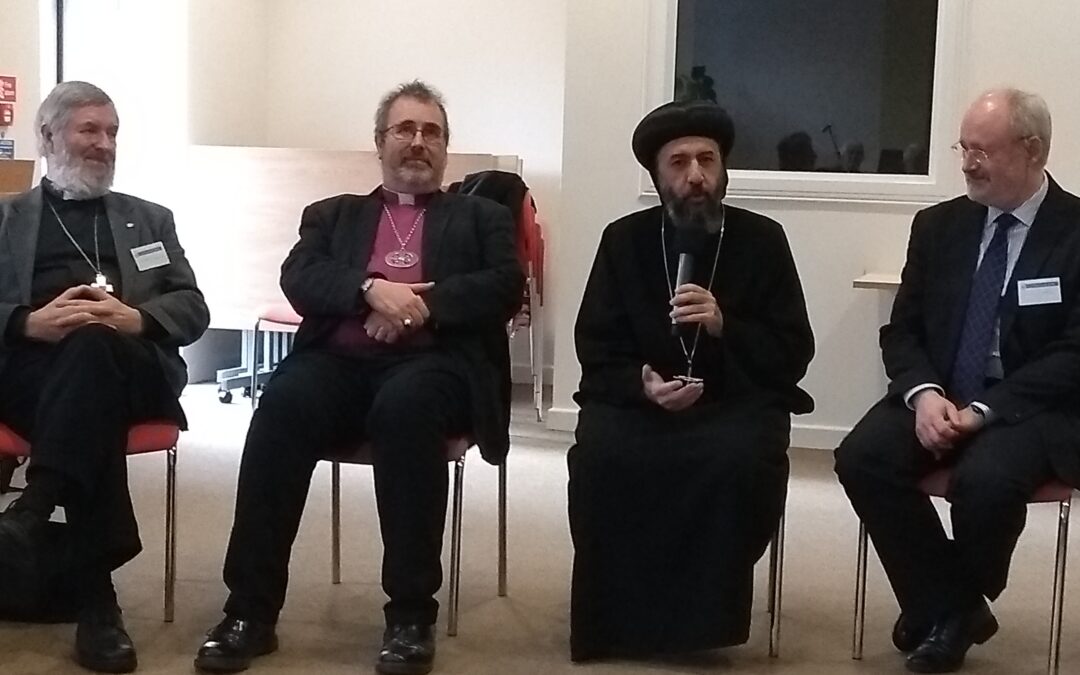
27 Feb 2018 | Focolare Worldwide
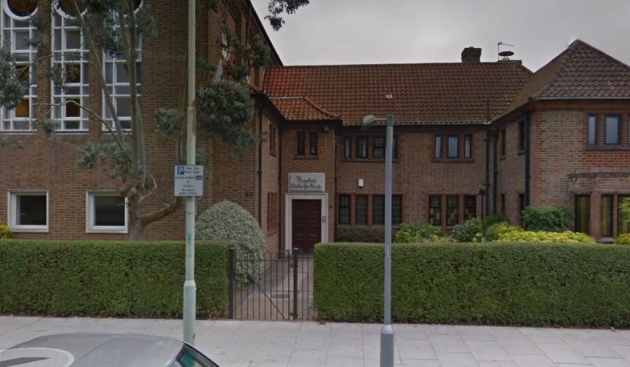
Welwyn Garden City
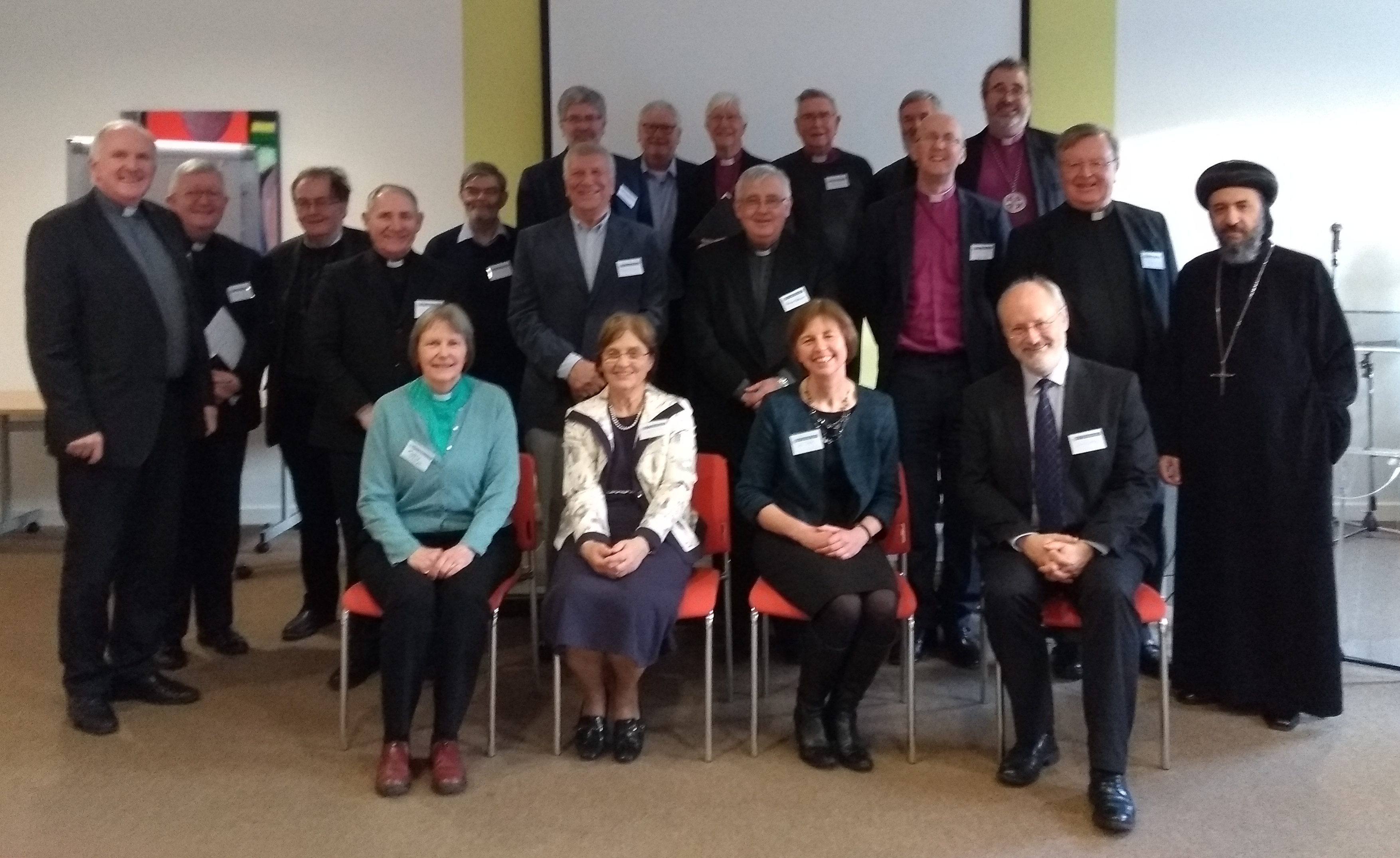 Povilus explained how, during that period, “a new and vast horizon opened up an unimaginable vision of Mary” for the founder of the Focolare Movement. She was discovered “almost as if for the first time” as a human being, “one of us”, but at the same time “imbued with the Word of God.” “Mary revealed herself as the Mother of God, Theotokos, Mary was not just, as we had thought, the young girl of Nazareth, the most beautiful creature in the world, whose love surpasses the love of all the mothers in the world. She was the Mother of God in a dimension that was completely new to us. To explain it, Chiara used an image, that of the sky enveloping the sun.” “It was a new intuition of the significance of the event that took place at the foot of the cross, of the sword that must have passed through Mary’s heart, being asked to renounce her maternity towards her divine son to take as a substitute child John. And yet Jesus in his death was giving his life to all humankind, making us all God’s children. As Mary’s role in the Annunciation was to say “yes” to something beyond herself that God was bringing about, here again, on Golgotha, what was asked of her was, as theologians have said, a “second yes.” There is a wealth of implications for our own lives that Chiara derived from this understanding of Mary Desolate. First and foremost is that of recognising Mary to be a model that can be imitated: “by loving one another we generate the presence of Jesus in our midst. Like Mary, we can offer Christ to the world spiritually.”
Povilus explained how, during that period, “a new and vast horizon opened up an unimaginable vision of Mary” for the founder of the Focolare Movement. She was discovered “almost as if for the first time” as a human being, “one of us”, but at the same time “imbued with the Word of God.” “Mary revealed herself as the Mother of God, Theotokos, Mary was not just, as we had thought, the young girl of Nazareth, the most beautiful creature in the world, whose love surpasses the love of all the mothers in the world. She was the Mother of God in a dimension that was completely new to us. To explain it, Chiara used an image, that of the sky enveloping the sun.” “It was a new intuition of the significance of the event that took place at the foot of the cross, of the sword that must have passed through Mary’s heart, being asked to renounce her maternity towards her divine son to take as a substitute child John. And yet Jesus in his death was giving his life to all humankind, making us all God’s children. As Mary’s role in the Annunciation was to say “yes” to something beyond herself that God was bringing about, here again, on Golgotha, what was asked of her was, as theologians have said, a “second yes.” There is a wealth of implications for our own lives that Chiara derived from this understanding of Mary Desolate. First and foremost is that of recognising Mary to be a model that can be imitated: “by loving one another we generate the presence of Jesus in our midst. Like Mary, we can offer Christ to the world spiritually.” 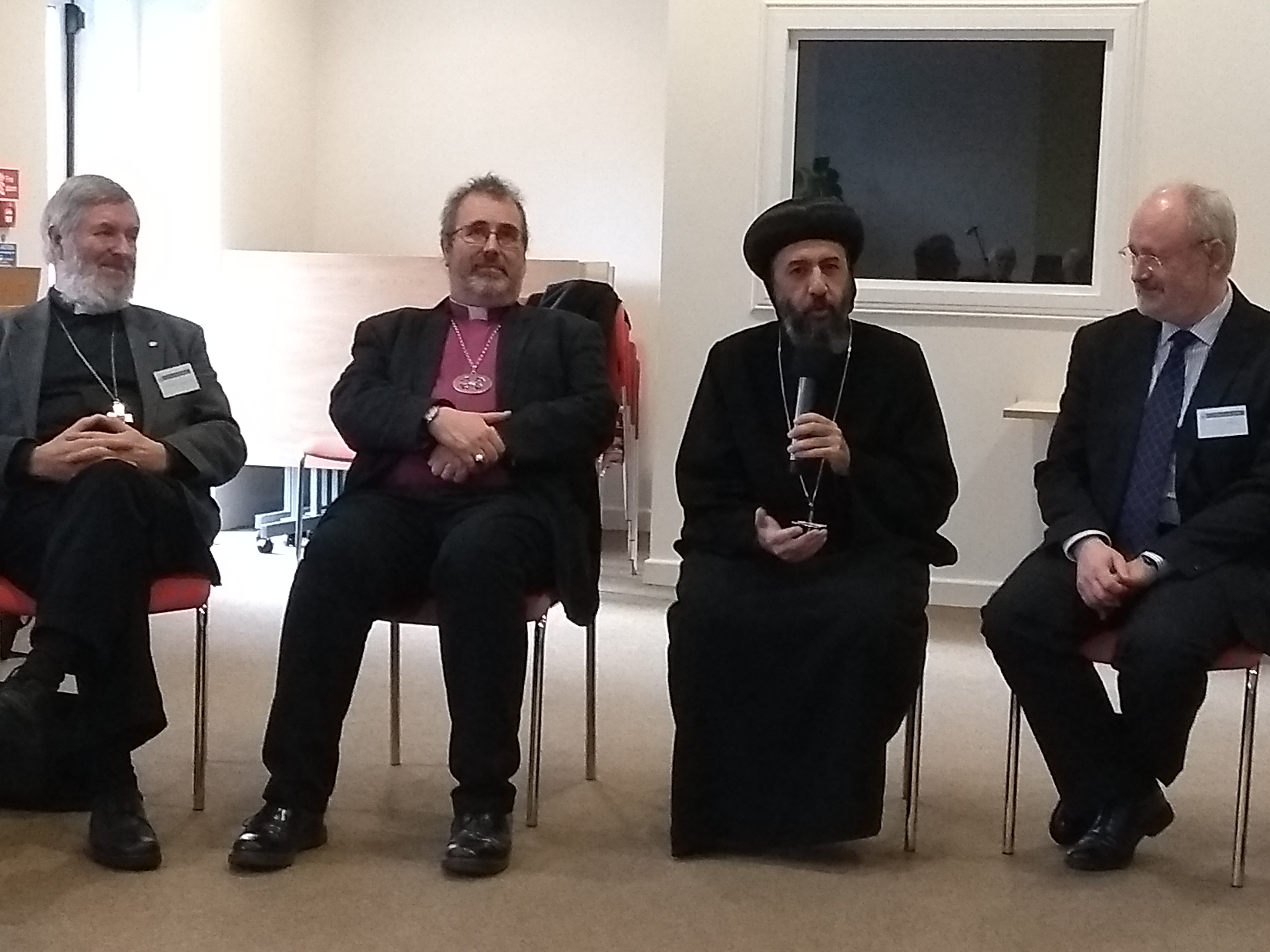 Another point that comes to new light in Chiara’s mystical experience of 1949 has to do with Mary’s place in the Church. “We know from the Acts of the Apostles that she was present at Pentecost which is often marked out as the birth of the Church. Chiara, describing her intuition of Mary’s place in the Church, from that early moment of the descent of the Spirit, used the metaphor of her being a heart: If Christ is the head of his mystical body, the Church, Mary is at its heart. Mary plays an essential role in helping the Church to respond fully to God’s project for it, which is to be a presence of Christ.” Great interest was shown in this Spirituality of Communion of Chiara Lubich’s, which aims “to increase the typical contribution of vitality, beauty and holiness that the Church, following Mary’s example, is called to bring to the world.”
Another point that comes to new light in Chiara’s mystical experience of 1949 has to do with Mary’s place in the Church. “We know from the Acts of the Apostles that she was present at Pentecost which is often marked out as the birth of the Church. Chiara, describing her intuition of Mary’s place in the Church, from that early moment of the descent of the Spirit, used the metaphor of her being a heart: If Christ is the head of his mystical body, the Church, Mary is at its heart. Mary plays an essential role in helping the Church to respond fully to God’s project for it, which is to be a presence of Christ.” Great interest was shown in this Spirituality of Communion of Chiara Lubich’s, which aims “to increase the typical contribution of vitality, beauty and holiness that the Church, following Mary’s example, is called to bring to the world.”
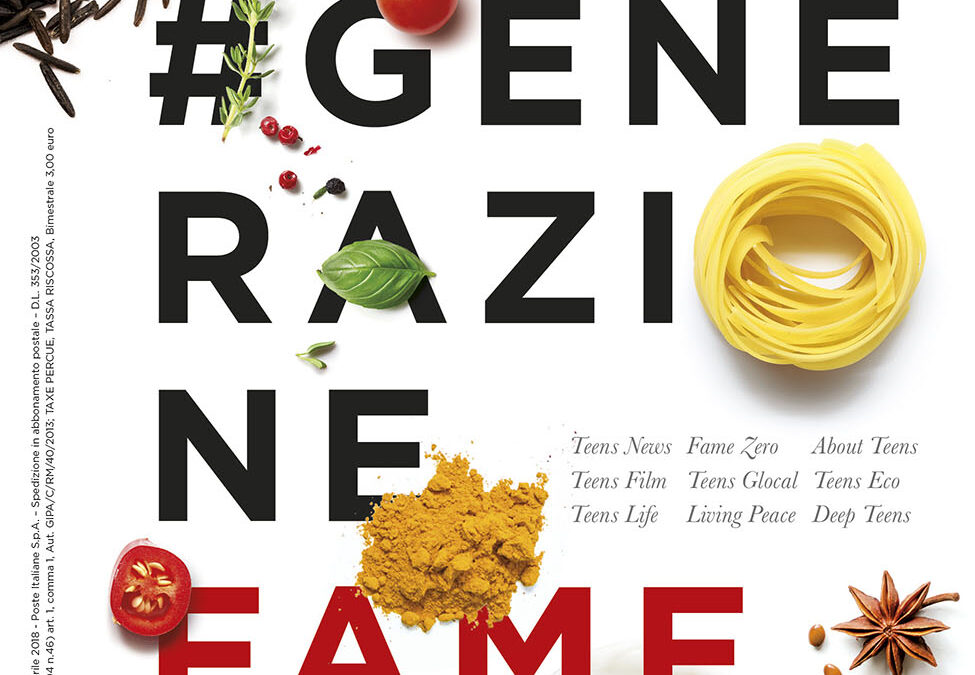
26 Feb 2018 | Focolare Worldwide
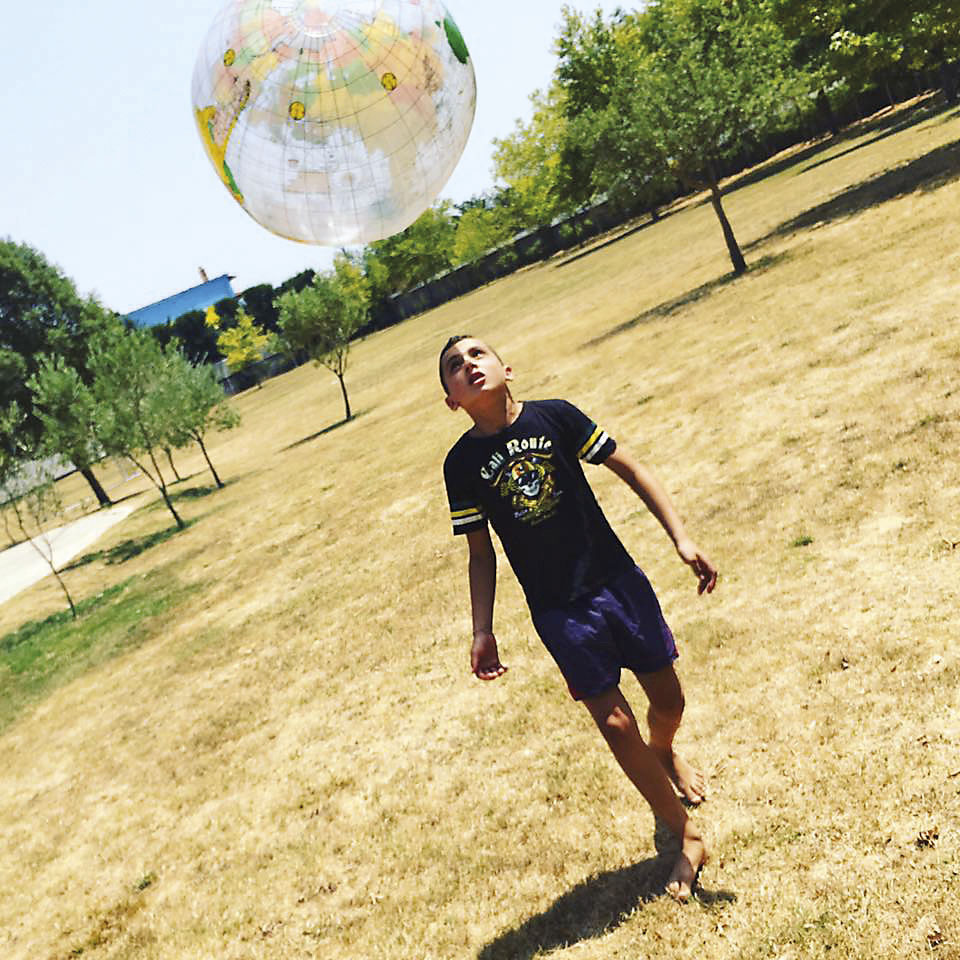 Seventeen sustainable development goals have been identified to be achieved by 2030. They are contained in the UN Agenda approved by the 193 UN member states. “Zero Hunger,” which is at the centre of an agreement signed in 2012 during a United Nations Conference in Rio de Janeiro, aims to free the world from hunger. In response to a request for collaboration sent by the United Nation’s agency, the young people and teenagers of the Focolare Movement decided to step onto the field alongside the FAO, in raising awareness among the generation that we hope will see world hunger defeated. World hunger has been on the rise again for more than a decade. It was recently reported on by the Annual United Nations Report of food safety and nutrition in the world (2017). In 2016, around 815 million people (38 million more than the year before), that is, 11% of the world population, was not sufficiently nourished. Around 155 million children under the age of five are underdeveloped (too short for their age), while 52 million suffer from chronic hunger, which means that their weight is not adequate to their height.
Seventeen sustainable development goals have been identified to be achieved by 2030. They are contained in the UN Agenda approved by the 193 UN member states. “Zero Hunger,” which is at the centre of an agreement signed in 2012 during a United Nations Conference in Rio de Janeiro, aims to free the world from hunger. In response to a request for collaboration sent by the United Nation’s agency, the young people and teenagers of the Focolare Movement decided to step onto the field alongside the FAO, in raising awareness among the generation that we hope will see world hunger defeated. World hunger has been on the rise again for more than a decade. It was recently reported on by the Annual United Nations Report of food safety and nutrition in the world (2017). In 2016, around 815 million people (38 million more than the year before), that is, 11% of the world population, was not sufficiently nourished. Around 155 million children under the age of five are underdeveloped (too short for their age), while 52 million suffer from chronic hunger, which means that their weight is not adequate to their height. 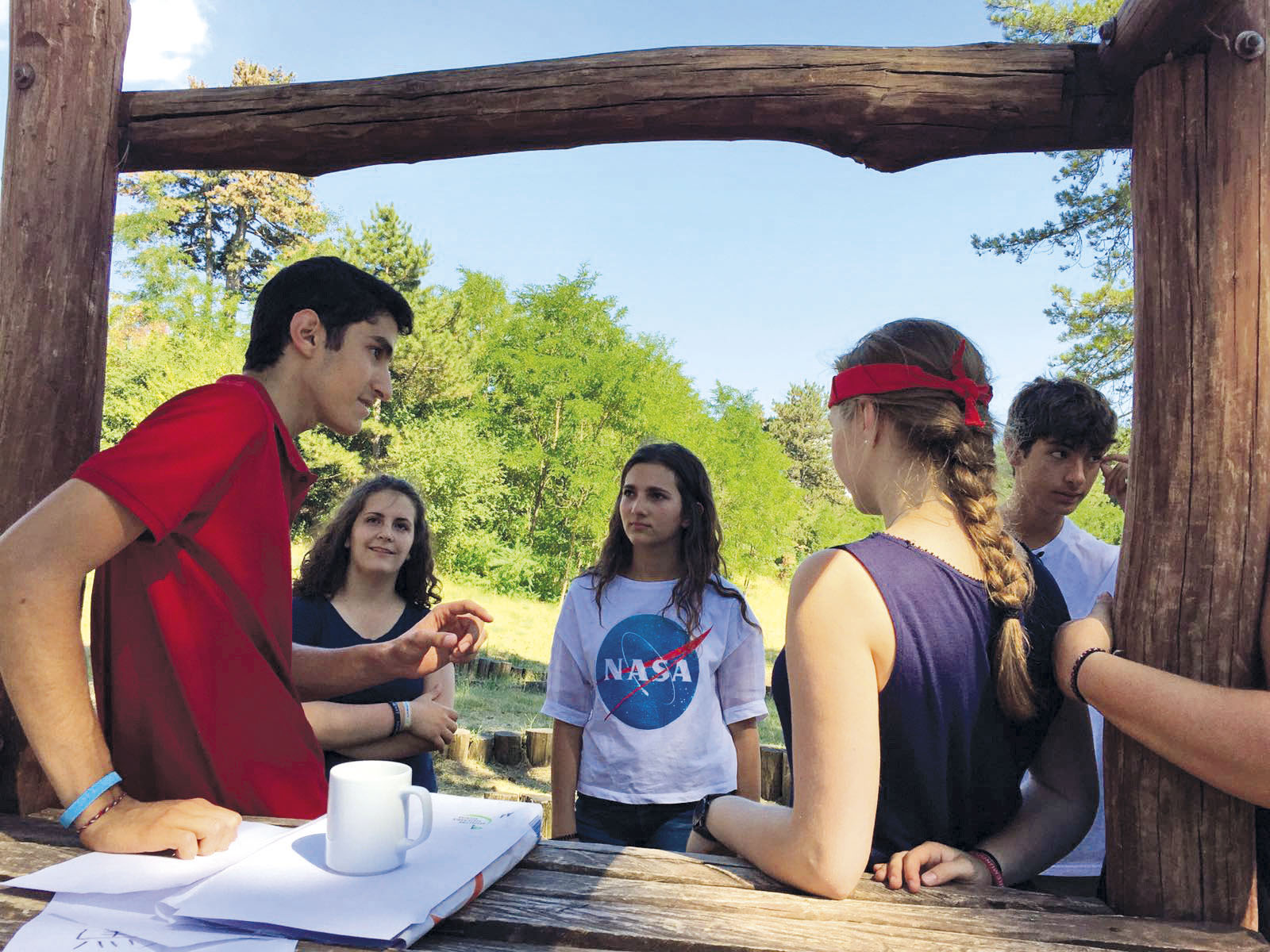 At the same time, because of a lack of healthy nourishment, 600 million people (including 41 million children) suffer from obesity, which is another face of malnutrition. The Report identified armed conflicts as the main cause of the migrations and of the shocks linked to climate change, as several of the key factors of the re-escalation of hunger and the many forms of malnutrition. Freeing the world of hunger will require urgent measures and decisions in favour of more sustainable lifestyles – from the consumer society to a change of course in international politics. But first it requires a stronger awareness and change in personal relationships. This is the message that the Focolare’s Teens for Unity and Youth for a United World have been spreading since last year along with several of their global-level projects: the need for study and becoming aware of the root causes of the problem; observing and monitoring the situation at the local level and involving as many young people, teenagers and associations as possible in: communicating and sharing experiences of working for the poor in their own local environments, for a more sober lifestyle, for dialogue, peace, the environment, welcoming immigrants, and, finally, their proposal to hold world-wide celebrations on the day chosen by the United Nations to be dedicated to the topic of nutrition (October 16).
At the same time, because of a lack of healthy nourishment, 600 million people (including 41 million children) suffer from obesity, which is another face of malnutrition. The Report identified armed conflicts as the main cause of the migrations and of the shocks linked to climate change, as several of the key factors of the re-escalation of hunger and the many forms of malnutrition. Freeing the world of hunger will require urgent measures and decisions in favour of more sustainable lifestyles – from the consumer society to a change of course in international politics. But first it requires a stronger awareness and change in personal relationships. This is the message that the Focolare’s Teens for Unity and Youth for a United World have been spreading since last year along with several of their global-level projects: the need for study and becoming aware of the root causes of the problem; observing and monitoring the situation at the local level and involving as many young people, teenagers and associations as possible in: communicating and sharing experiences of working for the poor in their own local environments, for a more sober lifestyle, for dialogue, peace, the environment, welcoming immigrants, and, finally, their proposal to hold world-wide celebrations on the day chosen by the United Nations to be dedicated to the topic of nutrition (October 16). 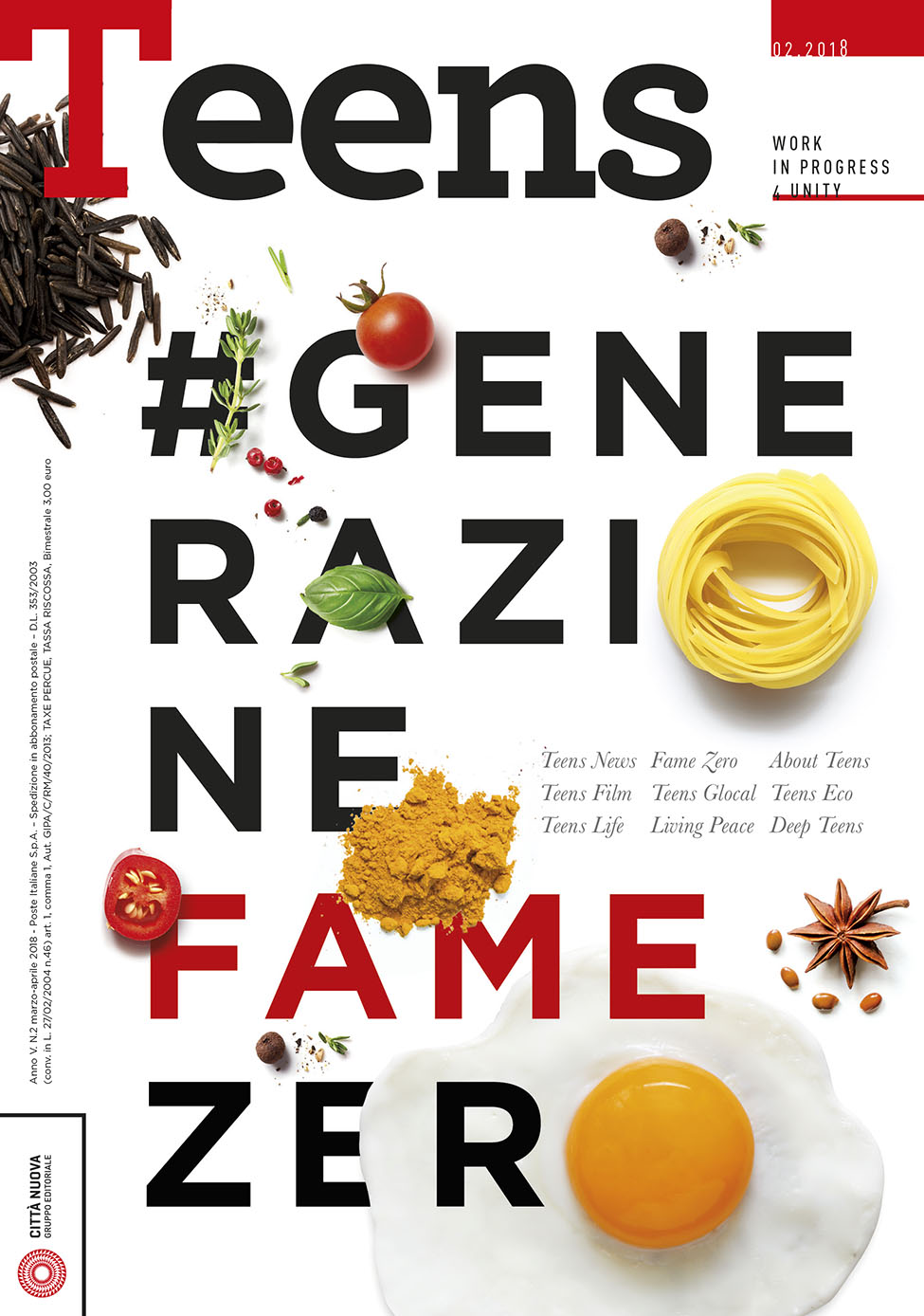 #ZeroHunger is now a regular feature of the Teens Magazine, published by Città Nuova in collaboration with the New Families Association, United World Association and the New Humanity Movement. The 2018 March-April edition will be dedicate to this topic. “What a thrill for our delegation,” write the teenagers on the editorial board, “to go into the headquarters of the FAO in Rome. Let’s get started right now so that our generation will truly be the first #GenerationZeroHunger. Teens Magazine will continue to follow this fascinating worldwide project.” The calendar shows April as the month for the publication of the Commitment Statement of the Teens for Unity, which was drawn up by teenagers from eleven countries. In May, the annual events for “United World Week” and “Run4Unity” will be entirely devoted to the topic. In June, a group of 600 children and teenagers (ages 9-12), attending an international congress of the Focolare Movement, will be the guests of the FAO for a morning of discussion and sharing on the topic. Finally, in the month of July, as part of the “United World Project” at Genfest 2018, a forum will be held on the theme #GenerationZeroHunger with the participation of the FAO. Chiara Favotti
#ZeroHunger is now a regular feature of the Teens Magazine, published by Città Nuova in collaboration with the New Families Association, United World Association and the New Humanity Movement. The 2018 March-April edition will be dedicate to this topic. “What a thrill for our delegation,” write the teenagers on the editorial board, “to go into the headquarters of the FAO in Rome. Let’s get started right now so that our generation will truly be the first #GenerationZeroHunger. Teens Magazine will continue to follow this fascinating worldwide project.” The calendar shows April as the month for the publication of the Commitment Statement of the Teens for Unity, which was drawn up by teenagers from eleven countries. In May, the annual events for “United World Week” and “Run4Unity” will be entirely devoted to the topic. In June, a group of 600 children and teenagers (ages 9-12), attending an international congress of the Focolare Movement, will be the guests of the FAO for a morning of discussion and sharing on the topic. Finally, in the month of July, as part of the “United World Project” at Genfest 2018, a forum will be held on the theme #GenerationZeroHunger with the participation of the FAO. Chiara Favotti
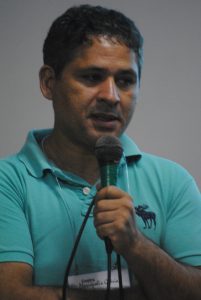
21 Feb 2018 | Focolare Worldwide
 Guaramiranga, with 7,000 inhabitants, is a small city of the Northeastern state of Ceará in Brazil, which boasts a highly diversified natural environment at the Atlantic coast where there are also the most beautiful beaches in the world, and with an interior full of lagoons, and water courses populated by mangroves, jungles and forests. About 100 kilometers from the coast, it is the seat of two important cultural events: the international “Jazz and Blues” and the more local “Northeastern Theatre Festival.” Here lives Almir, a “volunteer of God” of the Focolare Movement. Some years ago, pushed by the desire to do something for his city, he decided to run for the post of Town Councilor. After his election he was asked to assume the councillorship for Culture and Tourism, an important role since most of the city’s economy rotates around tourism, cultural events and exhibitions. The role is very challenging and above all, Almir is full of ideas. However, it was not an easy choice: “I lengthily pondered on the mayor’s request to assume this position. In fact I was thinking of running again, since after a year and a half there would be a reshuffling of the town council, and I doubted that the proposal aimed at limiting me politically, due to my ideas in advocating clarity and transparency. On the other hand, the area of culture and tourism was undergoing a difficult moment: many small hotels and shops were about to close and the personnel would have been fired. I felt the suffering of those brothers who could have lost their jobs, and of the owners who would have had to close ship. So after talking with some friends, I accepted the challenge.” Almir started to work on the new assignment with passion, mobilising the entrepreneurs and inhabitants. He launched a participation course with some citizens, involving them in the promotion of touristic events to give a new impulse to the city and boost the economy’s upturn. Also the inhabitants of the rural districts were involved in a project for the upholding of local traditions with new cultural initiatives in the territory. In short, the city saw the growth of touristic flows, the birth of new businesses, hotels and hostels and the creation of new jobs. “Other two challenges” – Almir explained – “were the relaunching of the Town Theatre in the city’s historical centre, and the revival of the Food Court, the square dedicated to restaurants. In this case, the difficult rapports between the restaurant owners negatively influenced the events held in the city. I asked myself how we could go about creating relationships of fraternity and collaboration in that place. I started by going to visit them, creating friendly relations with each of them, and trying to understand the problems and smoothing out the tensions. At first I found a lot of resistance, but I didn’t give up. In the end, I was able to build a “team,” to such a point that today these people have become friends and cooperate with one another. It seemed like a miracle to see these businessmen, who were enemies at first, relate with each other in a friendly and supportive way.” «Today, due to family issues, I am no longer involved in the public administration, but I participate in the political life with the conviction that in trying to concretise the words of the Gospel, we can find the strength to meet the necessities of one’s people and one’s own community.” Chiara Favotti Source: Movimento dos Focolares Brasil (our translation)
Guaramiranga, with 7,000 inhabitants, is a small city of the Northeastern state of Ceará in Brazil, which boasts a highly diversified natural environment at the Atlantic coast where there are also the most beautiful beaches in the world, and with an interior full of lagoons, and water courses populated by mangroves, jungles and forests. About 100 kilometers from the coast, it is the seat of two important cultural events: the international “Jazz and Blues” and the more local “Northeastern Theatre Festival.” Here lives Almir, a “volunteer of God” of the Focolare Movement. Some years ago, pushed by the desire to do something for his city, he decided to run for the post of Town Councilor. After his election he was asked to assume the councillorship for Culture and Tourism, an important role since most of the city’s economy rotates around tourism, cultural events and exhibitions. The role is very challenging and above all, Almir is full of ideas. However, it was not an easy choice: “I lengthily pondered on the mayor’s request to assume this position. In fact I was thinking of running again, since after a year and a half there would be a reshuffling of the town council, and I doubted that the proposal aimed at limiting me politically, due to my ideas in advocating clarity and transparency. On the other hand, the area of culture and tourism was undergoing a difficult moment: many small hotels and shops were about to close and the personnel would have been fired. I felt the suffering of those brothers who could have lost their jobs, and of the owners who would have had to close ship. So after talking with some friends, I accepted the challenge.” Almir started to work on the new assignment with passion, mobilising the entrepreneurs and inhabitants. He launched a participation course with some citizens, involving them in the promotion of touristic events to give a new impulse to the city and boost the economy’s upturn. Also the inhabitants of the rural districts were involved in a project for the upholding of local traditions with new cultural initiatives in the territory. In short, the city saw the growth of touristic flows, the birth of new businesses, hotels and hostels and the creation of new jobs. “Other two challenges” – Almir explained – “were the relaunching of the Town Theatre in the city’s historical centre, and the revival of the Food Court, the square dedicated to restaurants. In this case, the difficult rapports between the restaurant owners negatively influenced the events held in the city. I asked myself how we could go about creating relationships of fraternity and collaboration in that place. I started by going to visit them, creating friendly relations with each of them, and trying to understand the problems and smoothing out the tensions. At first I found a lot of resistance, but I didn’t give up. In the end, I was able to build a “team,” to such a point that today these people have become friends and cooperate with one another. It seemed like a miracle to see these businessmen, who were enemies at first, relate with each other in a friendly and supportive way.” «Today, due to family issues, I am no longer involved in the public administration, but I participate in the political life with the conviction that in trying to concretise the words of the Gospel, we can find the strength to meet the necessities of one’s people and one’s own community.” Chiara Favotti Source: Movimento dos Focolares Brasil (our translation)
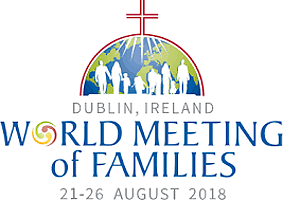
21 Feb 2018 | Focolare Worldwide
 In preparation for the 9th World Meeting of Families, the Pontifical Council for the Laity, Family and Life has published seven catecheses which are available on its site in five languages (English, Spanish, French, Italian and Portuguese). The meeting will take place in Dublin from 20-26 August 2018. Card. Kevin Farrell, Prefect of the Council defined the catechesis as “A catechetical program in the light of what Pope Francis donated to the entire world with the post-synodal Apostolic Exhortation Amoris laetitia.” The themes to be presented are: “Families today,” “Families in the light of the Word of God,” “God’s great dream,” “The culture of life,” “The culture of hope” and “The culture of joy.” Card. Farrell explained: “Each catechesis is introduced by some prayers drawn from the pontifical magisterium or from patristic tradition, and concludes with the requests for a moment of sharing that starts from the family, the first domestic Church, to then extend to the Christian community.” The catecheses are accompanied by a musical itinerary sung by the renowned Italian singer, Andrea Bocelli, in a concert at the Sagrada Familia Basilica of Barcelona in May 2015, and is the first of a series of repeated concerts within the ambit of the project entitled “The Great Mystery. The Gospel of the Family, School of Humanity for Our Time,” and also in the shrine of St John Paul II in Cracow, and in the St. Stephen Basilica in Budapest. (www.laityfamilylife.va/)
In preparation for the 9th World Meeting of Families, the Pontifical Council for the Laity, Family and Life has published seven catecheses which are available on its site in five languages (English, Spanish, French, Italian and Portuguese). The meeting will take place in Dublin from 20-26 August 2018. Card. Kevin Farrell, Prefect of the Council defined the catechesis as “A catechetical program in the light of what Pope Francis donated to the entire world with the post-synodal Apostolic Exhortation Amoris laetitia.” The themes to be presented are: “Families today,” “Families in the light of the Word of God,” “God’s great dream,” “The culture of life,” “The culture of hope” and “The culture of joy.” Card. Farrell explained: “Each catechesis is introduced by some prayers drawn from the pontifical magisterium or from patristic tradition, and concludes with the requests for a moment of sharing that starts from the family, the first domestic Church, to then extend to the Christian community.” The catecheses are accompanied by a musical itinerary sung by the renowned Italian singer, Andrea Bocelli, in a concert at the Sagrada Familia Basilica of Barcelona in May 2015, and is the first of a series of repeated concerts within the ambit of the project entitled “The Great Mystery. The Gospel of the Family, School of Humanity for Our Time,” and also in the shrine of St John Paul II in Cracow, and in the St. Stephen Basilica in Budapest. (www.laityfamilylife.va/)
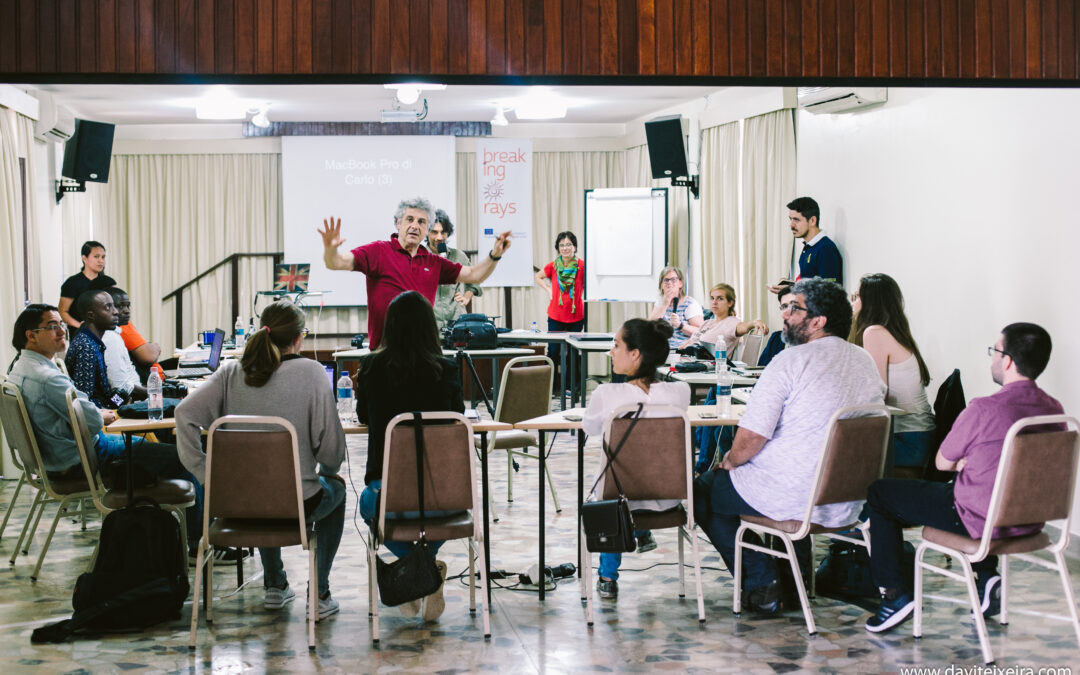
19 Feb 2018 | Focolare Worldwide
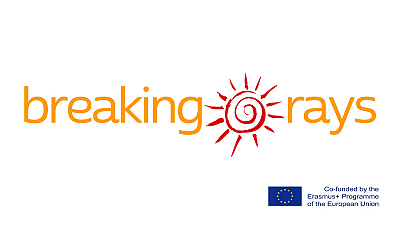 “Breaking Rays” is a play on the words “Breaking News” which are used to describe the interruption of some latest sensational news story. The sensational news this time was a project for the promotion of fraternity and a group of young communication workers who, with passion and skill, are stepping up to produce some maximum results. Breaking Rays aims at building an international network where experiences inspired by the charism of the Focolare Movement can come out of isolation and “break” onto the global scene, creating a widespread domino effect in other communities. Co-financed by the European Comission through the Erasmus+ and promoted by the international New Humanity Association in collaboration with CSC Audiovisual Centre, Italy, and other NGOs, the project is for young filmmakers and collaborators of the bi-monthly telephone CH Link-Up with news of the Focolare Community around the world. They already got through the first and second stages in Castelgandolfo, Italy, last July; and at Mariapolis Ginetta in San Paolo, Brazil on February 3-10. The next and final stage will take place concurrently with the Genfest, July 2018 in Manila, Philippines.
“Breaking Rays” is a play on the words “Breaking News” which are used to describe the interruption of some latest sensational news story. The sensational news this time was a project for the promotion of fraternity and a group of young communication workers who, with passion and skill, are stepping up to produce some maximum results. Breaking Rays aims at building an international network where experiences inspired by the charism of the Focolare Movement can come out of isolation and “break” onto the global scene, creating a widespread domino effect in other communities. Co-financed by the European Comission through the Erasmus+ and promoted by the international New Humanity Association in collaboration with CSC Audiovisual Centre, Italy, and other NGOs, the project is for young filmmakers and collaborators of the bi-monthly telephone CH Link-Up with news of the Focolare Community around the world. They already got through the first and second stages in Castelgandolfo, Italy, last July; and at Mariapolis Ginetta in San Paolo, Brazil on February 3-10. The next and final stage will take place concurrently with the Genfest, July 2018 in Manila, Philippines. 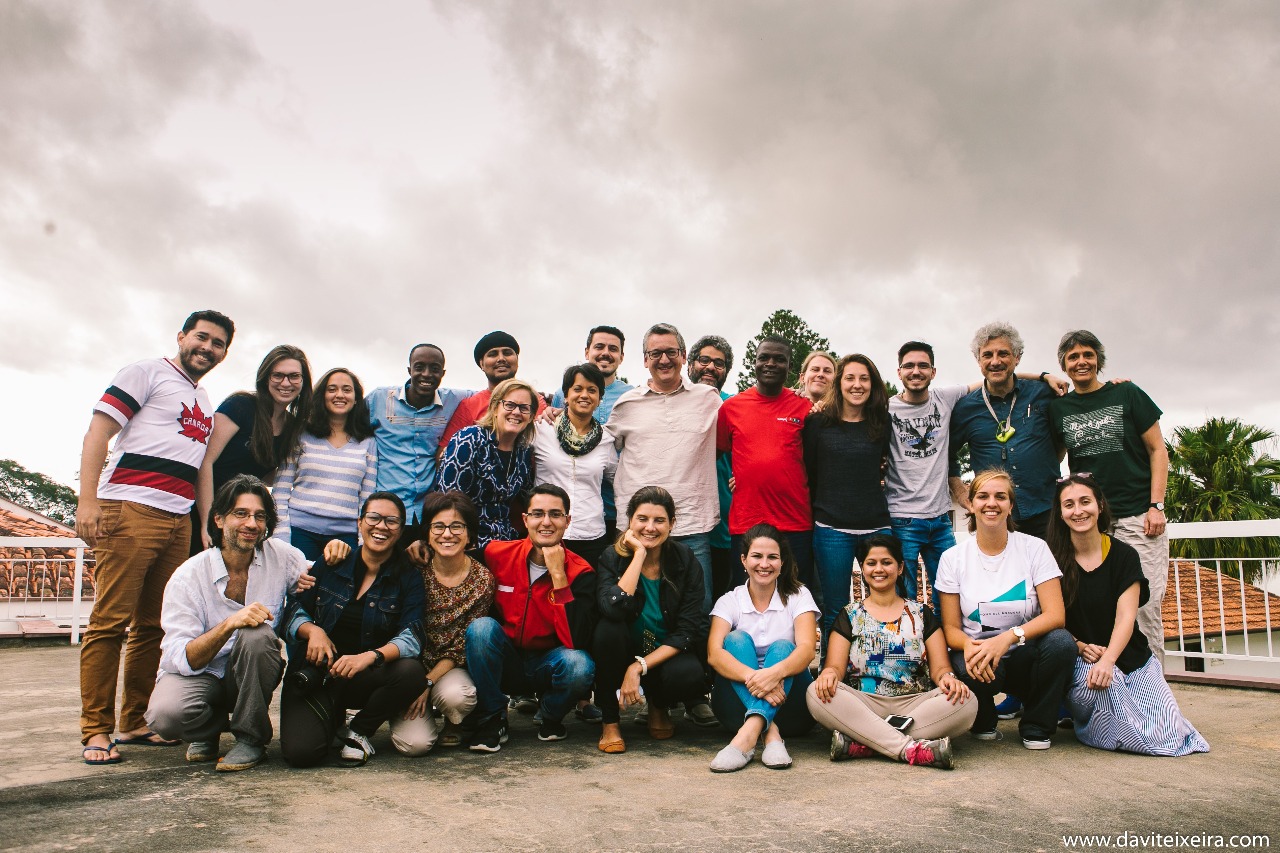 Twenty young people from different countries (Brazil, Italy Hungary, Indonesia, Philippines, India, Kenya and Burundi) have already arrived in Mariapolis Ginetta with a variety of skills, to be coordinated by professional tutors: Italian film director from RAI-TV, director of photography, Carlo Sgambato, project director, Kim Rowley from CSC audio-visuals, along with Isabela Reis, producer and curator of cultural audio-visual projects. With them there is also Paolo Cipollone from CSV Audiovisuals and coordinator of the project. Theoretical and practical training, along with experimenting with new techniques will alternate with work and a common life that will support a communion of talents and openness to constructive criticism. The group has made several visits to social projects of the region, making videos and interviewing. During other sessions, several experts in the field of communications (dreicting, television and radio journalism) have told their own experience and answered questions from the participants.
Twenty young people from different countries (Brazil, Italy Hungary, Indonesia, Philippines, India, Kenya and Burundi) have already arrived in Mariapolis Ginetta with a variety of skills, to be coordinated by professional tutors: Italian film director from RAI-TV, director of photography, Carlo Sgambato, project director, Kim Rowley from CSC audio-visuals, along with Isabela Reis, producer and curator of cultural audio-visual projects. With them there is also Paolo Cipollone from CSV Audiovisuals and coordinator of the project. Theoretical and practical training, along with experimenting with new techniques will alternate with work and a common life that will support a communion of talents and openness to constructive criticism. The group has made several visits to social projects of the region, making videos and interviewing. During other sessions, several experts in the field of communications (dreicting, television and radio journalism) have told their own experience and answered questions from the participants. 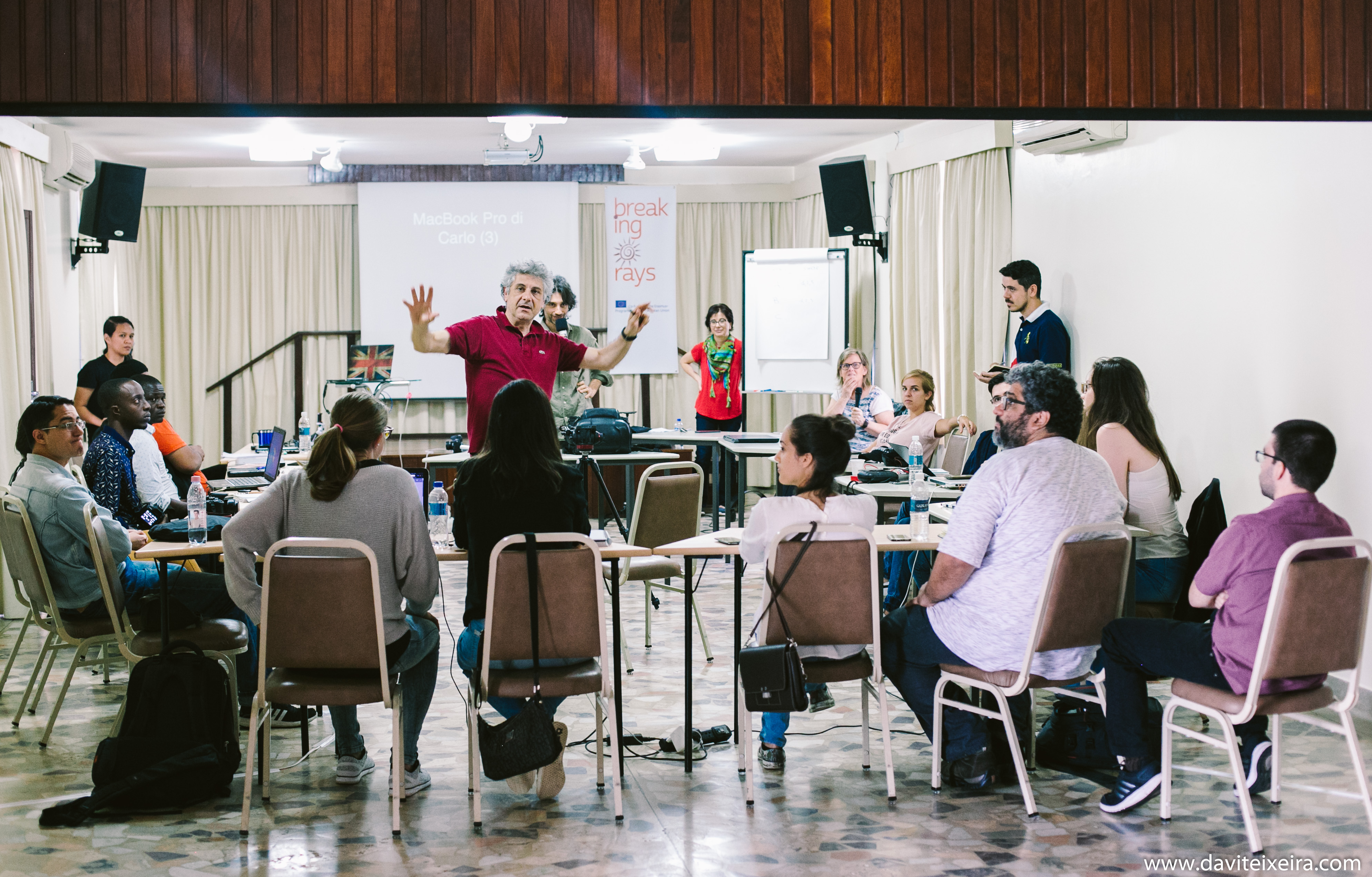 A unique experience in which to learn and go deeper into the profession of a journalist from a new perspective,” said Lewis from Burundi. “More than a course on film-making, powerful stories shared about how to make a better world,” said Donald from India. The team and experts helped me to develop an eye for detail and how to shatter stereotypes and cultural cliches, using audiovisuals.” Full-time tutor Isabela Reis from Brazil explains: “I think it’s a project we can be proud of. It was a strong experience that engaged us for eight days. It was useful for improving the ability to communicate among the young people. It was also important to discuss the various ways of taking advantage of the possibilities offered by technology.” Rafael from Brazil has been in Manila for several months helping to prepare the Genfest: “An important step towards Manila. It was beautiful to spend a whole week in contact with such incredible professionals. Their videos spread hope.” Kyle Venturillo from the Philippines: “We come from different parts of the world. We have different languages, cultures and personalities. In spite of this, we were able to establish a relationship of openness among us, which turned us into a family. We’re a group of people “a bit folly,” with different thoughts and perspectives, but with one main objective: to make this world more united.” Other participants in the project included: Starkmacher, Germany, Opus Mariae, Kenya, Focolare Ireland,, UJ Varos, Hungary, Pag-asa, Philippines, Civitas, Brazil, Focolare Society Bombay, India and YayasanDuniaBersatu, Indonesia. Chiara Favotti
A unique experience in which to learn and go deeper into the profession of a journalist from a new perspective,” said Lewis from Burundi. “More than a course on film-making, powerful stories shared about how to make a better world,” said Donald from India. The team and experts helped me to develop an eye for detail and how to shatter stereotypes and cultural cliches, using audiovisuals.” Full-time tutor Isabela Reis from Brazil explains: “I think it’s a project we can be proud of. It was a strong experience that engaged us for eight days. It was useful for improving the ability to communicate among the young people. It was also important to discuss the various ways of taking advantage of the possibilities offered by technology.” Rafael from Brazil has been in Manila for several months helping to prepare the Genfest: “An important step towards Manila. It was beautiful to spend a whole week in contact with such incredible professionals. Their videos spread hope.” Kyle Venturillo from the Philippines: “We come from different parts of the world. We have different languages, cultures and personalities. In spite of this, we were able to establish a relationship of openness among us, which turned us into a family. We’re a group of people “a bit folly,” with different thoughts and perspectives, but with one main objective: to make this world more united.” Other participants in the project included: Starkmacher, Germany, Opus Mariae, Kenya, Focolare Ireland,, UJ Varos, Hungary, Pag-asa, Philippines, Civitas, Brazil, Focolare Society Bombay, India and YayasanDuniaBersatu, Indonesia. Chiara Favotti

 María Cecilia Perrín was a sunny-natured Argentinean girl born in Punta Alta (Buenos Aires) in 1957. After being engaged for two years, she and Luis married in 1983 and she lived intensely with the desire to set solid Christian roots to the emerging family. Two years later, while she was pregnant she was diagnosed with cancer. With the support of her husband and the family, she chose not to heed the suggestion to undergo a “therapeutic abortion.” She died at the age of 28 after the birth of the baby girl. As she expressly requested, her remains were interred in the Mariapolis Lia (O’Higgins, Buenos Aires), a place of joy and hope. Her reputation of sanctity, heroism in accepting her illness, the example of Christian life, and the many graces that have been granted through her intercession started off the cause of her beatification on 30 November 2005.
María Cecilia Perrín was a sunny-natured Argentinean girl born in Punta Alta (Buenos Aires) in 1957. After being engaged for two years, she and Luis married in 1983 and she lived intensely with the desire to set solid Christian roots to the emerging family. Two years later, while she was pregnant she was diagnosed with cancer. With the support of her husband and the family, she chose not to heed the suggestion to undergo a “therapeutic abortion.” She died at the age of 28 after the birth of the baby girl. As she expressly requested, her remains were interred in the Mariapolis Lia (O’Higgins, Buenos Aires), a place of joy and hope. Her reputation of sanctity, heroism in accepting her illness, the example of Christian life, and the many graces that have been granted through her intercession started off the cause of her beatification on 30 November 2005.  Maria Orsola Bussone, born in 1954 in Vallo Torinese, northern Italy, was a generous, open and sportive child. At the age of 11 she participated with her family in a meeting of the parish Movement in Rocca di Papa. She wrote to Chiara Lubich: “I want to love always, be the first to love, without expecting a return. I want to let God use me as He desires and do all I can, since that is the only thing in life that matters.” On 10 July 1970, at 15, while participating as an activities coordinator in a summer camp, she died of an electric shock while drying her hair with a hairdryer. Her fame of sanctity spread and many people went to her tomb to pray for her intercession. Her diary and letters revealed her deep spirituality. The construction of the parish Centre to which she contributed was named after her. On 17 December 2000 the diocesan phase of the cause of beatification ended. On 18 March 2015 Pope Francis authorised the promulgation of the decree which declared her a Venerable.
Maria Orsola Bussone, born in 1954 in Vallo Torinese, northern Italy, was a generous, open and sportive child. At the age of 11 she participated with her family in a meeting of the parish Movement in Rocca di Papa. She wrote to Chiara Lubich: “I want to love always, be the first to love, without expecting a return. I want to let God use me as He desires and do all I can, since that is the only thing in life that matters.” On 10 July 1970, at 15, while participating as an activities coordinator in a summer camp, she died of an electric shock while drying her hair with a hairdryer. Her fame of sanctity spread and many people went to her tomb to pray for her intercession. Her diary and letters revealed her deep spirituality. The construction of the parish Centre to which she contributed was named after her. On 17 December 2000 the diocesan phase of the cause of beatification ended. On 18 March 2015 Pope Francis authorised the promulgation of the decree which declared her a Venerable.  Margarita Bavosi, born in 1941, is the third child of a wealthy family of Buenos Aires (Argentina). She lived a happy life until she was ten, when her mother suddenly passed away. The acute pain pushed her to ask the Virgin Mary to take her place. The meeting with the charism of unity was the answer to her desire for sanctity. She donated her life to God in the focolare, and was known to all as “Luminosa.” She spent some years in Brazil, Argentina and Uruguay, and became the co-director of the Focolare Movement in Spain. At 40 she felt an unexplainable physical decline, and only after three years received a precise prognosis. Soon she was unable to move about but continued to build relationships, taking to heart the motto of St. Aloysius Gonzaga “I shall keep on playing my game.” The night of 6 March 1985, amid the amazement of those present, she said “Here I am Jesus, I have always tried to do everything in your presence.” On 22 November 2008 the diocesan phase of the canonisation phase closed. The center of the Focolare of Madrid and the international town close to New York were named after her.
Margarita Bavosi, born in 1941, is the third child of a wealthy family of Buenos Aires (Argentina). She lived a happy life until she was ten, when her mother suddenly passed away. The acute pain pushed her to ask the Virgin Mary to take her place. The meeting with the charism of unity was the answer to her desire for sanctity. She donated her life to God in the focolare, and was known to all as “Luminosa.” She spent some years in Brazil, Argentina and Uruguay, and became the co-director of the Focolare Movement in Spain. At 40 she felt an unexplainable physical decline, and only after three years received a precise prognosis. Soon she was unable to move about but continued to build relationships, taking to heart the motto of St. Aloysius Gonzaga “I shall keep on playing my game.” The night of 6 March 1985, amid the amazement of those present, she said “Here I am Jesus, I have always tried to do everything in your presence.” On 22 November 2008 the diocesan phase of the canonisation phase closed. The center of the Focolare of Madrid and the international town close to New York were named after her.  Renata Borlone was born on 30 May 1930 in Aurelia (Civitavecchia, close to Rome). She was raised in a non-practicing but united family, and when she was 10, witnessed the explosion of World War II. Thirsting for truth, she sought it in studies. She enrolled in the Faculty of Chemistry, since she was a science enthusiast. At 19 she came in contact with the evangelical life of some of the first focolare women who had just moved to Rome, and through them, she felt the certainty that God is love! At 20 she entered the focolare and for 40 years served the Work of Mary, with roles of responsibility in Italy and abroad. In 1967 she arrived at the Training School Loppiano where she spent 23 years constantly focused on reaching sanctity. At 59 she was found to have a serious illness and the few months that remained were an acceleration in her thrust toward God. Despite her suffering she transmitted joy and a sense of sacredness and up to the last moment repeated, “I want to testify that death is life.” On 27 February 2011 the diocesan phase of the beatification process closed. Chiara Favotti Also see: Alfredo Zirondoli, “Luminosa continued to play. Profile of Margarita Bavosi,” Città Nuova, Rome. Giulio Marchesi, Alfredo Zirondoli, “A silence that became life. The life of Renata Borlone”, Città Nuova, Rome.
Renata Borlone was born on 30 May 1930 in Aurelia (Civitavecchia, close to Rome). She was raised in a non-practicing but united family, and when she was 10, witnessed the explosion of World War II. Thirsting for truth, she sought it in studies. She enrolled in the Faculty of Chemistry, since she was a science enthusiast. At 19 she came in contact with the evangelical life of some of the first focolare women who had just moved to Rome, and through them, she felt the certainty that God is love! At 20 she entered the focolare and for 40 years served the Work of Mary, with roles of responsibility in Italy and abroad. In 1967 she arrived at the Training School Loppiano where she spent 23 years constantly focused on reaching sanctity. At 59 she was found to have a serious illness and the few months that remained were an acceleration in her thrust toward God. Despite her suffering she transmitted joy and a sense of sacredness and up to the last moment repeated, “I want to testify that death is life.” On 27 February 2011 the diocesan phase of the beatification process closed. Chiara Favotti Also see: Alfredo Zirondoli, “Luminosa continued to play. Profile of Margarita Bavosi,” Città Nuova, Rome. Giulio Marchesi, Alfredo Zirondoli, “A silence that became life. The life of Renata Borlone”, Città Nuova, Rome.


 Povilus explained how, during that period, “a new and vast horizon opened up an unimaginable vision of Mary” for the founder of the Focolare Movement. She was discovered “almost as if for the first time” as a human being, “one of us”, but at the same time “imbued with the Word of God.” “Mary revealed herself as the Mother of God, Theotokos, Mary was not just, as we had thought, the young girl of Nazareth, the most beautiful creature in the world, whose love surpasses the love of all the mothers in the world. She was the Mother of God in a dimension that was completely new to us. To explain it, Chiara used an image, that of the sky enveloping the sun.” “It was a new intuition of the significance of the event that took place at the foot of the cross, of the sword that must have passed through Mary’s heart, being asked to renounce her maternity towards her divine son to take as a substitute child John. And yet Jesus in his death was giving his life to all humankind, making us all God’s children. As Mary’s role in the Annunciation was to say “yes” to something beyond herself that God was bringing about, here again, on Golgotha, what was asked of her was, as theologians have said, a “second yes.” There is a wealth of implications for our own lives that Chiara derived from this understanding of Mary Desolate. First and foremost is that of recognising Mary to be a model that can be imitated: “by loving one another we generate the presence of Jesus in our midst. Like Mary, we can offer Christ to the world spiritually.”
Povilus explained how, during that period, “a new and vast horizon opened up an unimaginable vision of Mary” for the founder of the Focolare Movement. She was discovered “almost as if for the first time” as a human being, “one of us”, but at the same time “imbued with the Word of God.” “Mary revealed herself as the Mother of God, Theotokos, Mary was not just, as we had thought, the young girl of Nazareth, the most beautiful creature in the world, whose love surpasses the love of all the mothers in the world. She was the Mother of God in a dimension that was completely new to us. To explain it, Chiara used an image, that of the sky enveloping the sun.” “It was a new intuition of the significance of the event that took place at the foot of the cross, of the sword that must have passed through Mary’s heart, being asked to renounce her maternity towards her divine son to take as a substitute child John. And yet Jesus in his death was giving his life to all humankind, making us all God’s children. As Mary’s role in the Annunciation was to say “yes” to something beyond herself that God was bringing about, here again, on Golgotha, what was asked of her was, as theologians have said, a “second yes.” There is a wealth of implications for our own lives that Chiara derived from this understanding of Mary Desolate. First and foremost is that of recognising Mary to be a model that can be imitated: “by loving one another we generate the presence of Jesus in our midst. Like Mary, we can offer Christ to the world spiritually.”  Another point that comes to new light in Chiara’s mystical experience of 1949 has to do with Mary’s place in the Church. “We know from the Acts of the Apostles that she was present at Pentecost which is often marked out as the birth of the Church. Chiara, describing her intuition of Mary’s place in the Church, from that early moment of the descent of the Spirit, used the metaphor of her being a heart: If Christ is the head of his mystical body, the Church, Mary is at its heart. Mary plays an essential role in helping the Church to respond fully to God’s project for it, which is to be a presence of Christ.” Great interest was shown in this Spirituality of Communion of Chiara Lubich’s, which aims “to increase the typical contribution of vitality, beauty and holiness that the Church, following Mary’s example, is called to bring to the world.”
Another point that comes to new light in Chiara’s mystical experience of 1949 has to do with Mary’s place in the Church. “We know from the Acts of the Apostles that she was present at Pentecost which is often marked out as the birth of the Church. Chiara, describing her intuition of Mary’s place in the Church, from that early moment of the descent of the Spirit, used the metaphor of her being a heart: If Christ is the head of his mystical body, the Church, Mary is at its heart. Mary plays an essential role in helping the Church to respond fully to God’s project for it, which is to be a presence of Christ.” Great interest was shown in this Spirituality of Communion of Chiara Lubich’s, which aims “to increase the typical contribution of vitality, beauty and holiness that the Church, following Mary’s example, is called to bring to the world.”

 Seventeen sustainable development goals have been identified to be achieved by 2030. They are contained in the UN Agenda approved by the 193 UN member states. “Zero Hunger,” which is at the centre of an agreement signed in 2012 during a United Nations Conference in Rio de Janeiro, aims to free the world from hunger. In response to a request for collaboration sent by the United Nation’s agency, the young people and teenagers of the Focolare Movement decided to step onto the field alongside the FAO, in raising awareness among the generation that we hope will see world hunger defeated. World hunger has been on the rise again for more than a decade. It was recently reported on by the Annual United Nations Report of food safety and nutrition in the world (2017). In 2016, around 815 million people (38 million more than the year before), that is, 11% of the world population, was not sufficiently nourished. Around 155 million children under the age of five are underdeveloped (too short for their age), while 52 million suffer from chronic hunger, which means that their weight is not adequate to their height.
Seventeen sustainable development goals have been identified to be achieved by 2030. They are contained in the UN Agenda approved by the 193 UN member states. “Zero Hunger,” which is at the centre of an agreement signed in 2012 during a United Nations Conference in Rio de Janeiro, aims to free the world from hunger. In response to a request for collaboration sent by the United Nation’s agency, the young people and teenagers of the Focolare Movement decided to step onto the field alongside the FAO, in raising awareness among the generation that we hope will see world hunger defeated. World hunger has been on the rise again for more than a decade. It was recently reported on by the Annual United Nations Report of food safety and nutrition in the world (2017). In 2016, around 815 million people (38 million more than the year before), that is, 11% of the world population, was not sufficiently nourished. Around 155 million children under the age of five are underdeveloped (too short for their age), while 52 million suffer from chronic hunger, which means that their weight is not adequate to their height.  At the same time, because of a lack of healthy nourishment, 600 million people (including 41 million children) suffer from obesity, which is another face of malnutrition. The Report identified armed conflicts as the main cause of the migrations and of the shocks linked to climate change, as several of the key factors of the re-escalation of hunger and the many forms of malnutrition. Freeing the world of hunger will require urgent measures and decisions in favour of more sustainable lifestyles – from the consumer society to a change of course in international politics. But first it requires a stronger awareness and change in personal relationships. This is the message that the Focolare’s
At the same time, because of a lack of healthy nourishment, 600 million people (including 41 million children) suffer from obesity, which is another face of malnutrition. The Report identified armed conflicts as the main cause of the migrations and of the shocks linked to climate change, as several of the key factors of the re-escalation of hunger and the many forms of malnutrition. Freeing the world of hunger will require urgent measures and decisions in favour of more sustainable lifestyles – from the consumer society to a change of course in international politics. But first it requires a stronger awareness and change in personal relationships. This is the message that the Focolare’s 



 “Breaking Rays” is a play on the words “Breaking News” which are used to describe the interruption of some latest sensational news story. The sensational news this time was a project for the promotion of fraternity and a group of young communication workers who, with passion and skill, are stepping up to produce some maximum results. Breaking Rays aims at building an international network where experiences inspired by the charism of the Focolare Movement can come out of isolation and “break” onto the global scene, creating a widespread domino effect in other communities. Co-financed by the European Comission through the Erasmus+ and promoted by the international
“Breaking Rays” is a play on the words “Breaking News” which are used to describe the interruption of some latest sensational news story. The sensational news this time was a project for the promotion of fraternity and a group of young communication workers who, with passion and skill, are stepping up to produce some maximum results. Breaking Rays aims at building an international network where experiences inspired by the charism of the Focolare Movement can come out of isolation and “break” onto the global scene, creating a widespread domino effect in other communities. Co-financed by the European Comission through the Erasmus+ and promoted by the international 
